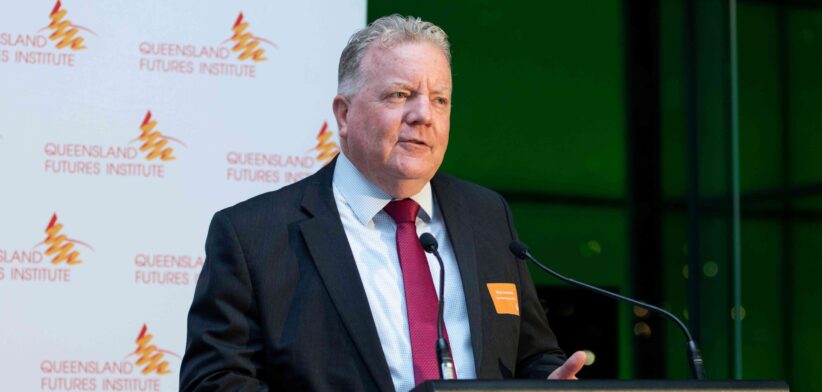Queensland needs a robust population policy to boost the appeal of regions and a 50-year plan to give certainty to investors, according to the head of the state’s future-focussed think tank.
Queensland Futures Institute (QFI) CEO Steve Greenwood said the state needed to move past the notion that regions were some sort of charity case in constant need of support.
“So much of our economic prosperity derives from the regions,” he said.
“Instead of always talking about needing to support the regions we should have a very firm agenda to ensure regional cities have a consistent level of community and business infrastructure.
“They should be an attractive employment and lifestyle alternative to the capitals.”
In 2024, QFI, a member-based policy and networking organisation, is celebrating its 10-year anniversary as a leader of debate and future-focussed policy discussion.
Mr Greenwood said his three key observations from a decade of running QFI were:
- The need for business and industry, and the education sector to work together to deal with challenges. Governments could not be expected to come up with all the answers.
- The lack of genuine long-term policy planning fuelled by the fact that governments were not “rewarded” for anything beyond the short term.
- A failure to recognise the strength of Queensland’s regions and the opportunity to empower regional cities and give them greater autonomy.
Mr Greenwood said, instead of an ad-hoc approach to funding projects in regional areas, the state needed a consistent “population policy” that set a minimum standard for social and economic infrastructure for regional cities.
“You should be able to know that you can take up an opportunity in Cairns, Townsville, Mackay or Rockhampton without that meaning a drop in the quality of your lifestyle,” he said.
“As we grapple with the challenges of population growth, it would make far more sense to encourage more people into established regional cities than try to cram everyone into south-east Queensland.”
He said the state desperately needed a non-partisan 50-year growth plan so investors had a firm and reliable sense of where Queensland was headed.
“There will be a lot of investor interest in Queensland around the Olympics but if we want quality long-term investment there needs to be a high level of certainty and we need to stick to the plan,” he said.
“If we had that type of planning we wouldn’t be bogged down in stadium debates – it would be obvious what the post-Olympics infrastructure needs are because it would be in the long-term plan.”
Moving forward Mr Greenwood also sees the need for some “magic dust” to connect industry and the education sector and capitalise on research outcomes.
“We need more discussion on the importance of productivity in our economy and that will require a state-of-the-art nexus between education and the needs of the business sector,” he said.
“It also feels like we will need some radical intervention to make teaching more attractive and to cluster some of the world’s best and brightest into this part of the world.”
Mr Greenwood said, as QFI moved into its second decade, he was keen to engage deeper into defence, resources, manufacturing and education/research industries and to do more policy work on the big issues.
Long-term QFI Chair Julieanne Alroe recently stepped down from the role which has now been taken up by Brighter Super CEO Kate Farrar.
More information can be found on the QFI website.








